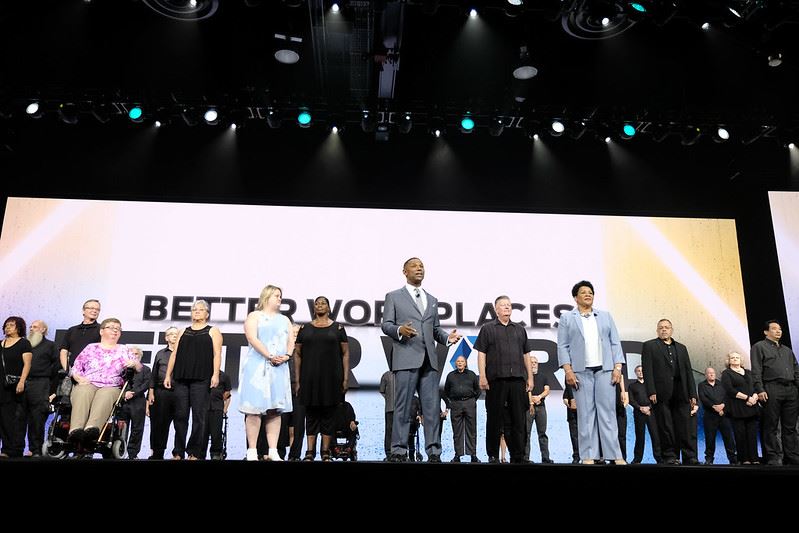Editor's Note
Lessons on the Workplace as a Community
Hilda Rosca Nartea
The recent SHRM Annual Conference & Exposition experience delivered a lot of impact and inspiration to The HR Agenda team that we decided to make this issue a sort of homage to the 2019 conference. This issue’s theme “Building Better Workplaces” is a way of continuing the conversations that sparked from the SHRM19 theme of “Creating Better Workplaces,” this time with a bit more focus on the issues that are closest to Japanese organizational culture.
The task of building better workplaces is an ongoing commitment and involves numerous points of further consideration and action, the most pressing of which are discussed through the following line-up:
- Actionable, powerful tips to make a better workplace
- Employee training best practices to prevent sexual harassment at work
- When creating a good place to work, should you work on branding or building it first?
- Perks that emphasize and uphold company culture, as discussed in our Knowledge@Wharton selected piece
- Legislation that provides older workers in Japan more opportunities to find dignified employment, as explained by our HR Legal Clinic partners
- Advice from our resident AskHR experts on handling the challenges that inevitably come when you’re working on something as huge as making work better
- And a daring call to action from the Editorial: face the future to make the workplace better now.
Perhaps one of the reasons why SHRM19 felt big was because it went big. The discussions during the four-day event included issues that not only happen within the four walls of the office, but also those that go beyond it, such as immigration and sexual harassment. The scope of the topics expanded out into the communities, economies and geographies that affect both the world of work as well as the work that makes the world go round.
The event reinforced that while it’s not always on top of mind as we buzz about our day to day, HR work is all about building communities, both within and outside the organization. As SHRM declares, they are “leading with a bold purpose because we believe when we create better workplaces, we also create a better world.”
Operating driven by such a purpose entails serious work and a strategy-driven approach. CEO Johnny C. Taylor, Jr., answering a question from The HR Agenda on how HR can build influence, says the foundation of SHRM’s strategy is based on investing heavily in policy and advocacy to raise recognition and value. “That is my advice: build a strategy that’s foundationally around policy and advocacy,” he said.
While SHRM conferences have always upheld a wide-angle perspective, this time the stance to look at the connection between workplace-building and society-building is decidedly clearer and louder. At one point during the event, on the SHRM main stage stood with pride individuals who are not often given the dignity of honest work: people with disabilities, the formerly incarcerated, military veterans and people aged 50 and above. The scene was an inspiring, stirring reminder of how an HR with the right mindset, creativity and skills can improve the business, change lives and – you guessed it – change the world.
It’s such a privilege to have the opportunity to step back and be reminded that the cubicle (or any site where work happens) does not exist in isolation. That every decision HR makes impacts not just the people we work with, but society as a whole. That the work HR does can enable a more equal distribution of access to the key factors essential to human dignity: economic opportunity, family security and safer, stronger communities.
Here’s to creating workplaces that make for a better world.
***
 |
Hilda Rosca Nartea is editor-in-chief of The HR Agenda. She heads the writing team of a Dubai-based digital agency and is also a content producer for non-profit organizations, having done projects for the United Nations Development Programme under the Philippine Department of Energy. She studied Film and Audio-Visual Communications at the University of the Philippines. |
TELL US WHAT YOU THINK:






